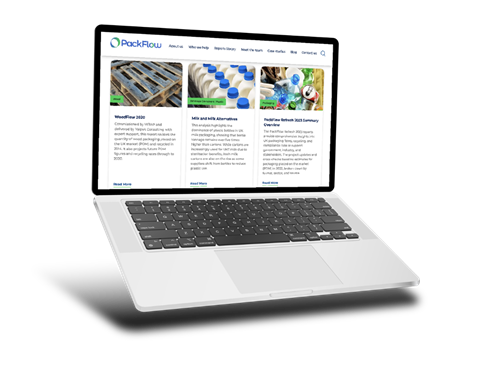
Valpak by Reconomy has made its full catalogue of PackFlow reports accessible through a dedicated website, including UK packaging flow models and data used by WRAP to guide its Plastics Pact targets.
Valpak says the PackFlow reports have shaped environmental policy and sustainability strategies both in the UK and internationally, as well as providing a critical evidence base for cost calculations, research projects and investment in infrastructure. In addition to specific material flows, the company claims its reports have informed decisions and highlighted challenges in areas ranging from the UK’s single-use plastics ban to compliance risks associated with waste electrical and electronic equipment.
The report library contains a full archive of PackFlow studies in a filterable format. Examples of the new online resources include Valpak’s research on the number of wet wipes placed on the market in the UK each year, revealing the number is close to 30.5 billion – almost three times the original estimate. Valpak says the information has directly informed proposed legislation to restrict the supply and sale of plastic-containing wet wipes.
According to Valpak, its models of packaging flows across the UK are also included which were used by the Department for Environment, Food and Rural Affairs (DEFRA) to shape EPR proposals, by WRAP to guide Plastics Pact targets, and by industry to benchmark performance and plan investments. Additional reports include comprehensive insights into UK packaging flows, recycling, and compliance risks; analysis of milk packaging in the UK; and evidence on how the pandemic reshaped packaging markets and recycling performance.
In related news, PlasticFree announced in September that it would be opening access to its global database of validated materials, analysis and case studies without subscriptions or fees, designed to be used by designers and brands seeking alternatives to plastic. By removing its subscription paywall, PlasticFree says it will allow AI to analyse materials at scale and identify science-backed alternatives in order to accelerate the replacement of harmful chemicals.
Last month WRAP announced the UK Packaging Pact, a ten-year agreement seeking to avoid virgin materials, boost recyclability and recycled content, upscale reuse and refill, improve traceability, and more. Considered the ‘successor agreement’ to the UK Plastics Pact, it will be launched in April 2026 and come to a close in 2035.
If you liked this story, you might also enjoy:
The ultimate guide to the Packaging and Packaging Waste Regulation in 2025
How are the top brands progressing on packaging sustainability?
Everything you need to know about global packaging sustainability regulation in 2025
The key to increasing the use of reusable packaging in supermarkets














No comments yet